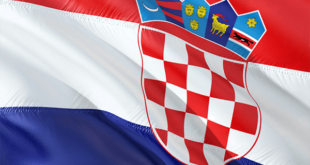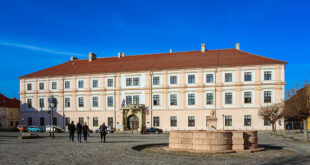Embarking on a medical career path is one quite popular choice among international students. And Croatia, along with a few Eastern European countries, has emerged as a promising study destination for aspiring doctors. That’s why we’ve compiled this comprehensive guide on medical education in the country. Discover the best medical programs and institutions in Croatia, the fees and other crucial details related to studying medicine in Croatia.
Table of Contents
Why Study Medicine in Croatia?
Before getting into the nitty-gritty of medical studies in Croatia, let’s find out first why studying medicine in Croatia can be a gateway to a successful medical career.
Affordability
If one thing is true about medical education, it’s the fact that it’s not cheap. And this financial aspect is a significant and legitimate concern for many budding physicians. Well good news, Croatia is one of those countries that offer competitive tuition fees for medical studies. And it does so without compromising on the quality of the education provided.
Longstanding Academic Tradition
Higher education has been around in Croatia for centuries, with institutions such as the University of Zagreb that exists since 1669. This testifies of the country’s long tradition in academia and teaching experience. And the university hosts a school of medicine which provides some of the best medical programs in Croatia.
Read our ranking of the top 10 universities in Croatia for international students.
Quality Higher Education System
Croatia is one of the signing countries of the Bologna Process, aligning its institutions with what applies in other European countries. The country also has 2 of its main universities figuring in top university global rankings. In other words, if you study medicine in Croatia, you have what it takes to pursue further specialization or employment in any other EU countries.
Study Medicine in English
The other reason to choose Croatia for medical studies is the possibility to pursue education in English. There are 3 main medical universities in Croatia that offer fully English-taught programs. This showcases the country’s effort to welcome more international students and enhance its educational offers and facilities to meet global standards. You can check out the benefits of each institution further in this article.
Well-equipped Facilities
Medical universities in Croatia have all it takes to provide high-quality medical training at state-of-the-art facilities. They provide students with supportive academic staff and practical training opportunities in their teaching clinics, hospitals, laboratories and research centers. Moreover, partnerships with leading healthcare institutions allow students to gain practical experience under the guidance of seasoned professionals.
Read also our article on the compelling reasons to study abroad in Croatia.
Entry Requirements and Admission Process to Medical Studies in Croatia
General requirements to be eligible to study medicine in Croatia include:
- Passing A-level (or equivalent from high school) in scientific subjects – mostly biology and chemistry, and Physics for some schools
- Having completed at least 4 years of secondary education, proving the student’s qualification for university entrance
- Sitting an admission exam covering the candidate’s knowledge in biology and chemistry
- Proficiency in English (for med schools teaching in this language) with at least a C1 level. Non-native speakers candidates must provide their IELTS or TOEFL scores.
- Having a clear health bill attested by a medical certificate
Other requirements are available on each university’s website. Moreover, it might be beneficial for aspiring medical students to take a pre-med course. This will help them prepare well for the entrance exam.
Additionally, some universities such as Osijek might require a motivation letter as well as an academic CV. Once you’ve passed the entrance examination, you can move on to university application. Read our guide on university application in Croatia to find out what to do.
How Long is Medical School in Croatia?
Generally speaking, medical studies in Croatia last 6 years in total. At the end of these 6 years, students must complete a graduation thesis and pass 2 further examinations in order to obtain their license to practice.
The content of the programs varies depending on the university. Usually, this involves an ECTS credit system with specific credit numbers to complete each semester. Programs also include block courses with examination periods following. Teaching consists of a mix of theoretical and practical elements through various medical subjects from the first to the last year.
Moreover, students at the University of Split need to pass an intermediate exam after completing the first 3 years. Lastly, the academic year in Croatia spans from October 1st to July 15.
How Much Does It Cost to Study Medicine in Croatia?
Medical programs at universities in Croatia cost between €9,000 and €16,000 per year, depending on the institution:
- At the University of Rijeka, tuition cost is €10,000 per year
- Zagreb and Split charge €6,000 per semester
- At the University of Osijek, tuition is €8,000 per semester
Even though it might look significant, these costs are way lower than what applies in other countries such as the UK or the US. Moreover, Croatia provides several scholarship programs to help students and researchers finance their studies.
Additionally, living costs in Croatia remain very accessible as they range between €600 and €1,000 per month, depending on the accommodation and city. You can check out our article on the subject to get more details.
Read also about the types of scholarships available for international students in Croatia.
Best Medical Universities in Croatia for International Students
Croatia has several universities offering medical programs, with the University of Zagreb being one of the most renowned. 3 institutions offer English-speaking programs: Rijeka, Split and Zagreb.
Rijeka University’s Faculty of Medicine
The first leading universities in Croatia for medical education has officially started to exist in 1973, but with faculties that are around since the 18th centuries. That’s why the faculty of medicine’s origins date back to 1955. It has since grow to become one of the most prominent institution for scientific and medical institutions not only in Croatia but beyond.
The university is located in Rijeka, Croatia’s third-largest cities and main seaport. It’s also one of the countries safest towns. The faculty therefore is located in the palace of the Branchetta Brothers, in one of the oldest parts of the city. Moreover, it boasts several recognitions, including being listed in WHO’s World Directory of Medical Schools.
Here’s a summary of what to know about medical studies at Rijeka University:
- Entry requirements include the entrance exam scores and higher marks in Biology, Chemistry and Physics
- Some applicants might not need to sit the entrance exam:
- Those who have completed an internationally recognized exam such as MCAT or BMAT with a minimal score of 125 for each section
- Those with a bachelor’s degree in natural sciences with good scores in Biology, Chemistry and Physics
- Those who already underwent a premedical college training
- There is a 100% English-taught medical program for international students
- Tuition fee is €10,000 per year for 6 years of studies, payable in two installments
- The faculty closely collaborates with the university’s Faculty of Health Studies and Faculty of Dental Medicine.
- Student life include several social events such as Humanijada, Bal medicinara, Kapi života
- Teaching methods foster a direct, personal and individualized approach to education
Split University’s School of Medicine
Split is one of the largest universities in Croatia, which was established in 1974. It’s one of those institutions in the country that put emphasis on international collaboration. Since 2011, the medical school of the university provides a fully-English program along with 3 other programs in Croatian: medicine, dental medicine and pharmacy.
The medical school’s location is on the southern coast of the Split peninsula. It consists of a laboratory building, a teaching and administration building and a hotel for guest lecturers. Clinical classes take place at the Firule and Križine University Hospitals.
Here are facts and figures about the medical program at Split University:
- Studies last 6 year, leading to an eligibility to practice in any European Union country and an application for licensure in countries like the UK or the US
- The curriculum applies the Bologna process and requires the completion of 360 ECTS credits
- Tuition fee costs €12,000 per year that the students pay one week after acceptance
- Requirements to admission include:
- High-school diploma or equivalent with a minimum of 12 years of education completed
- Evidence of proficiency in English
- Passing the admission process that is highly competitive
- Learning approach emphasizes on the clinical and practical aspects of medical practice
- The school has collaborations with the University of Ottawa in Canada and the Medical College of Wisconsin in the US
University of Zagreb School of Medicine (UZSM)
Next is the oldest and the largest medical school in Croatia, which started to exist in the 17th century. The school also has started to provide fully English study program in medicine in 2005, the first of its kind in Croatia. Being a very international research university, it therefore welcomes students from other English-speaking countries such as the US, the UK and Canada.
The medical school has built its reputation through investing in the most modern medical equipments and facilities, as well as its innovative teaching approach. The campus has its location in the capital city of the Republic of Croatia, along the Sava River and the Southern slopes of the Madvednica mountain.
Lastly, the school has international recognition from the WHO and is listed in the World Directory of Medical Schools.
Here are some important facts on the medical studies at UZSM:
- The medical program lasts 6 years, leading to a Doctor of Medicine degree
- Studies are organized into 12 semesters and integrate the Bologna process
- Teaching approach has a more methodological focus and consists of more seminars, demonstrations, practical exercises and clinical work and fewer lectures.
- In the final year of study, students undergo clinical rotations in several hospital and health institutions in Croatia
- Admission requirements include the evaluation of high school grades and passing the entrance exam with an overall score of at least 61
- Proof of English language proficiency is required
- Exemption from the entrance exam include one of the following:
- Pre-medical college background
- MCAT score of 125 per section minimum,
- Bachelor’s degree with good grades in Biology, Chemistry and Physics,
- BMAT test
- SAT in Biology, Chemistry and Physics with a score of 600 minimum in each subject.




 Aljawaz Your guide to study abroad
Aljawaz Your guide to study abroad






